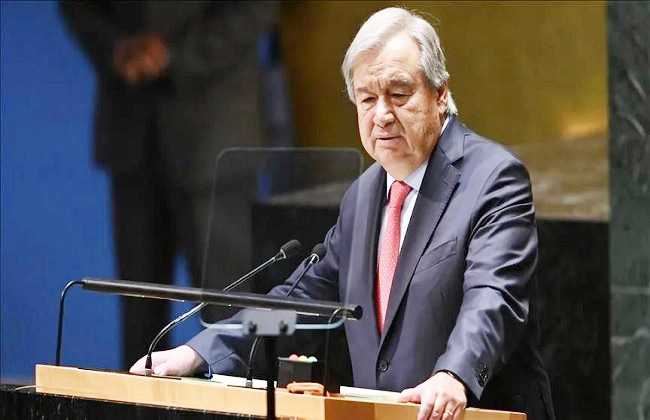
At last the UN Security Council has passed a resolution calling for an immediate ceasefire in Gaza. While stopping short of demanding a permanent end to the violence, it goes further than the world’s peak peace and security body had so far managed since the start of the current brutal phase of conflict in October. But the time it’s taken to get to this point signals an ongoing failure of global institutions to uphold human rights.
Today’s conflicts around the world – not just in Gaza, but in Sudan, Ukraine and sadly many other places – are bringing immense cruelty and suffering, targeted at civilian populations and civil society. One in six people are currently exposed to conflict. International rules are supposed to make sure atrocities don’t happen, and if they do, the international community works to halt the bloodshed and bring those responsible to justice. But states are repeatedly flouting the rules.
The latest State of Civil Society Report, from global civil society alliance CIVICUS, highlights how international bodies are flailing as states make hypocritical decisions that undermine the rules-based international order. Belligerents are brazenly ignoring long-established tenets of international human rights and humanitarian law because they expect to get away with it. Civil society has global governance reform plans but isn’t getting a seat at the table.
Powerful states including Russia and the USA are demonstrating selective respect for the rules, shielding allies but castigating enemies. This is clear among the many states that rushed to Ukraine’s defence but have hesitated to criticise Israel. At the basest level, some states are displaying racism as they show concern for white people’s human rights but not for those of people of colour.
The Security Council has moved incredibly slowly, hampered by powerful states using their veto, its resolutions watered down through lengthy processes despite the urgency of the situation. States wanting to see an end to conflicts have taken to other arenas, including the UN General Assembly and Human Rights Council – but these lack the clout of the Security Council.
Human rights are supposed to be one of the UN’s three pillars, alongside peace and security and sustainable development. But they’re very much the poor relation. The human rights pillar gets only 4.3 per cent of the UN’s regular budget. Problems with funding were plain to see in January, when UN offices in Geneva shut down temporarily due to a liquidity crisis, unable to meet heating costs at the height of a human rights emergency. Around 50 UN member states were reported to have failed to pay their 2023 contributions fully or partly.
Some states are withdrawing from the UN’s human rights scrutiny, with Uganda and Venezuela insisting on the closure of human rights offices in their countries, Sudan’s military kicking out a UN mission tasked with restoring democracy and Ethiopia successfully lobbying for an end to a commission scrutinising the many human rights abuses committed during conflict.

